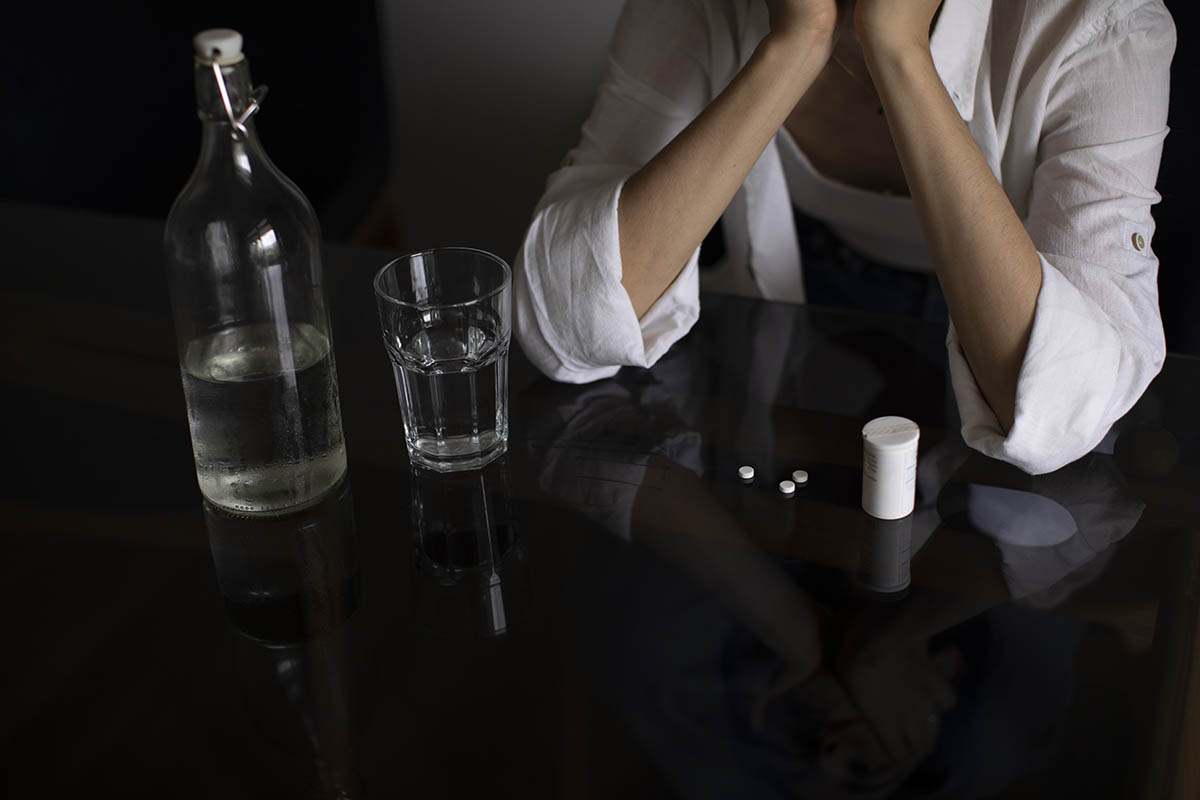Understanding Alcohol-Induced Psychosis

Key Takeaways:
- Alcohol-induced psychosis occurs when heavy or chronic drinking disrupts brain chemistry, leading to hallucinations, delusions, confusion, and severe cognitive disturbances.
- Without proper treatment, alcohol-induced psychosis can increase risks such as self-harm, unsafe behaviors, worsening mental health symptoms, and long-term cognitive impairment.
- Early intervention that includes detox, medical stabilization, psychiatric care, and long-term support greatly improves recovery outcomes for alcohol-induced psychosis.
A Closer Look at Alcohol-Induced Psychosis
Alcohol-induced psychosis is one of the most serious consequences of heavy or long-term alcohol use, affecting the way a person thinks, feels, and perceives reality. This condition can cause frightening symptoms, including hallucinations and delusions, that make everyday life feel unstable and unsafe. At Capistrano Beach Recovery, we understand how draining this experience can be for both individuals and their families. Our team is committed to explaining what alcohol-induced psychosis is, why it happens, and how effective treatment can help restore clarity, safety, and long-term stability.
What is Alcohol-Induced Psychosis?
Alcohol-induced psychosis, often referred to as alcohol-related psychosis, is a psychiatric disorder triggered by the acute effects of heavy alcohol consumption. Unlike other forms of psychosis, such as schizophrenia, alcohol-induced psychosis is temporary and typically resolves once alcohol use ceases. However, its transient nature does not diminish its severity or potential consequences.
How Does Alcohol Induced Psychosis Occur?
The exact mechanisms underlying alcohol-induced psychosis remain elusive, but several factors contribute to its development:
- Neurochemical imbalances: Alcohol disrupts the delicate balance of neurotransmitters in the brain, particularly dopamine and glutamate, which play crucial roles in perception, mood regulation, and cognition.
- Neuroinflammation: Chronic alcohol abuse can trigger inflammatory responses in the brain, further exacerbating neuronal dysfunction and contributing to the onset of psychosis.
- Genetic predisposition: Individuals with a family history of psychiatric disorders or a genetic vulnerability to alcohol dependence may be more susceptible to alcohol-induced psychosis.
Recognizing the Symptoms of Alcohol-Induced Psychosis
Alcohol-induced psychosis manifests through a constellation of symptoms, which may vary in intensity and duration:
- Hallucinations: Visual, auditory, or tactile hallucinations are common, with individuals perceiving sights, sounds, or sensations that are not present.
- Delusions: False beliefs or perceptions, such as paranoia or grandiosity, may arise, leading individuals to interpret reality inaccurately.
- Disorganized thinking: Cognitive disturbances, including incoherent speech, fragmented thoughts, and impaired decision-making, may occur.
- Emotional instability: Mood swings, agitation, or profound apathy are often observed, reflecting the underlying turmoil within the individual’s psyche.
Understanding the Risks of Alcohol-Induced Psychosis
- Increased risk of self-harm or harm to others: Delusions or hallucinations may compel individuals to engage in risky behaviors or act aggressively towards themselves or others.
- Diminished occupational and social functioning: The disruptive nature of psychosis can impair one’s ability to maintain employment, sustain relationships, or fulfill familial responsibilities.
- Legal entanglements: Erratic behavior associated with psychosis may lead to legal repercussions, including arrests, charges of public intoxication, or involvement in violent incidents.
- Exacerbation of underlying mental health conditions: Psychosis can exacerbate pre-existing mental health disorders, such as depression or bipolar disorder, complicating treatment and recovery efforts.
Strategies for Addressing Alcohol-Induced Psychosis
Capistrano Beach Recovery adopts a multifaceted approach to treating alcohol-induced psychosis, encompassing:
- Medically supervised detoxification: Safely manage withdrawal symptoms and stabilize the individual’s physical condition to facilitate further treatment.
- Psychiatric assessment and dual diagnosis treatment: Identify underlying mental health disorders and develop tailored treatment plans to address co-occurring conditions, ensuring comprehensive care.
- Pharmacotherapy: In some cases, medications may be prescribed to alleviate psychotic symptoms and stabilize mood, providing relief and facilitating therapeutic interventions.
- Psychotherapy: Engage in individual and group therapies to explore the root causes of alcohol abuse, develop coping skills, and address underlying psychological issues.
- Supportive services: Access holistic modalities, such as mindfulness practices, art therapy, and recreational activities, to promote emotional well-being and foster a sense of purpose and fulfillment.
Get Treatment at Capistrano Beach Recovery
If you or someone you know is grappling with alcohol-induced psychosis, it’s crucial to seek help without delay. Call Capistrano Beach Recovery today at 866-569-9391 to embark on the journey toward lasting recovery and reclaiming control over your life.
Frequently Asked Questions
While alcohol-induced psychosis is typically reversible with treatment, chronic alcohol abuse can result in long-term cognitive impairment and structural changes in the brain.
Yes, factors such as genetic predisposition, the presence of co-occurring mental health disorders, and the pattern and duration of alcohol consumption can influence one’s susceptibility to alcohol-induced psychosis.
Yes, individuals with a history of alcohol-induced psychosis may be at risk of experiencing recurrence, particularly if they resume heavy drinking or fail to address underlying mental health issues.
While outpatient treatment may be appropriate for some individuals, residential treatment offers a structured and supportive environment conducive to healing and recovery, especially for those with severe symptoms or complex needs.
Family involvement can play a crucial role in the recovery process, offering emotional support, encouraging treatment adherence, and participating in family therapy sessions to address relational dynamics and promote healing.
Table of Contents
Getting Started on your Journey Today
Get Help Today!
If you or a loved one are seeking addiction treatment, look no further than Capistrano Beach Recovery. Contact us today to learn more about our treatment options and take the first step towards lasting recovery.

